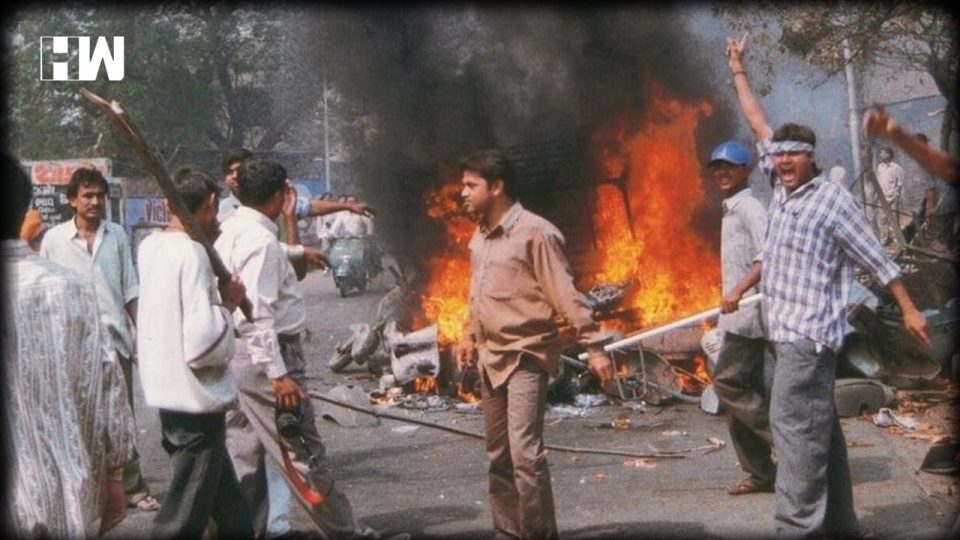Tagging it “rationalistion of contents in textbooks”, the NCERT said that the the decision is based on overlapping with similar text, irrelevant content and difficulty level.
The 2002 Gujarat riots and the Emergency imposed in 1975 are among the topics that have been dropped from textbooks of classes 6-12, in what’s being termed as a part of syllabus “rationalistion” exercise.
The changes were made due to the coronavirus pandemic and the National Education Policy 2020 which emphasises on reducing the content load, said the National Council of Educational Research and Training (NCERT). The NCERT advises the central and state governments on policies and programmes for qualitative improvement in school education.
This development comes two months after the body removed chapters on Democracy and Diversity, Mughal courts, Cold War era, Industrial revolution and poems by Urdu poet Faiz Ahmed Faiz from the syllabus.
In the Class 12 Political Science curriculum, there was a reference to the Gujarat riots in the chapter ‘Recent Developments in Indian Politics’, which has been dropped now. Some of the excerpts from the portion that’s been dropped now read- “Gujarat riots show that the government machinery also becomes susceptible to sectarian passions” and “Instances, like in Gujarat, alert us to dangers involved in using religious sentiments for political purposes. This poses a threat to democratic politics.”
Five pages on controversies regarding Emergency have also been omitted by the NCERT. The portion on emergency, mentioned in the chapter ‘The Crisis of Democratic Order’ in the Class 12 Political Science curriculum, has also been removed.
The excerpt on Emergency stated abuse of power and malpractices committed by the Indira Gandhi government. It also had the list of excesses like arrest of political workers, restrictions on media, torture and custodial deaths, forced sterilisations, large-scale displacement of the poor.
Portions on notable civil social movements have also been excluded. The excluded movements are Movement for RTI, Narmada Bachao Andolan, Chipko movement in Uttarakhand, Dalit Panthers in Maharashtra, farmers movement in 1980s by Bharatiya Kisan Union.
Tagging it “rationalistion of contents in textbooks”, the NCERT said that the the decision is based on overlapping with similar text, irrelevant content and difficulty level.
In view of COVID-19 pandemic, it added, it is imperative to reduce content load on students and the changes will help students in making a speedy recovery in learning.
“National Education Policy 2020 emphasises reducing content load, providing opportunities for experiential learning with creative mindset,” the NCERT said.
As an independent media platform, we do not take advertisements from governments and corporate houses. It is you, our readers, who have supported us on our journey to do honest and unbiased journalism. Please contribute, so that we can continue to do the same in future.

